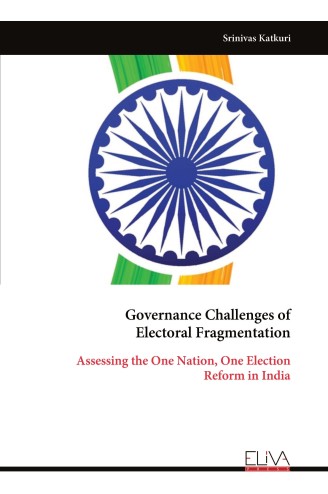
Governance Challenges of Electoral Fragmentation
$ 45.5
Description
The idea of “One Nation, One Election” has emerged as a transformative proposal in India’s democratic discourse, aiming to synchronize elections to the Lok Sabha and State Legislative Assemblies. This initiative promises to enhance governance efficiency by reducing the frequency of elections, curbing public expenditure, and enabling political parties and elected representatives to focus more on development than constant campaigning. It also seeks to alleviate electoral fatigue among voters and streamline the electoral calendar for the Election Commission. Historically, simultaneous elections were the norm until the late 1960s, after which the cycle was disrupted due to premature dissolutions of legislative bodies. The current revival of this proposal is driven by both logistical and economic considerations. Financially, simultaneous elections could significantly reduce the costs of conducting multiple elections, which have ballooned over the years. Administratively, it would also lessen the burden on security forces and government personnel involved in the electoral process. However, implementing this reform raises constitutional, legal, and federal challenges. Amendments to multiple provisions of the Constitution, including Articles 83, 85, 172, and 174, would be required. Concerns also arise about the centralization of power, potential dilution of regional issues, and practical difficulties in synchronizing terms of legislatures. Moreover, issues related to premature dissolution of assemblies and by-elections remain unresolved. Critics argue that such a reform may compromise the federal structure enshrined in the Constitution and affect the autonomy of states. On the other hand, proponents see it as a necessary modernization of India’s democratic machinery. Legal feasibility, logistical preparedness, and political consensus are essential for realizing this ambitious reform.



